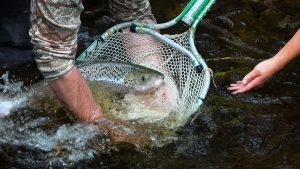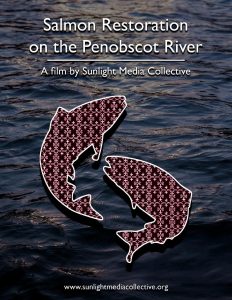Over 40 legislators attended a closed session on Tribal State Relations, on February 11th, at the State House in Augusta. The goal of the Legislative orientation was to begin an examination of the past and current relationship between the Maine State government and Maine Tribal governments
Organizer, founder of Seven Eagles Media and former Penobscot Nation Representative to the Legislature, Donna Loring, wrote:
“The relationship between the tribes and the state has been ignored and marginalized for almost two hundred years. It is critical for Legislators to recognize and become knowledgeable about this relationship. State government has to deal with and work with Maine Tribes on almost a daily basis. Analyzing past attitudes and practices is helpful if we are to understand the present political and legal issues confronting State and Tribal relations.”
Loring, now the Governor’s Senior Adviser for Tribal Affairs, and Representative Rachel Talbot Ross have been working to bring Tribal and racial awareness trainings to the legislature since Talbot Ross was the president of the Portland Chapter of the NAACP and Loring was a Representative. This session, Rep. Talbot Ross approached the Speaker of the House and the President of the Senate to sponsor a series of legislative orientation trainings on implicit bias.
Presenters at the Tribal-State Relationship Training were James Francis, Penobscot Nation Tribal Historian and Director of the Tribe’s Department of Cultural and Historic Preservation, Dr. Darren Ranco, Chair of Native American Studies at the University of Maine at Orono and Penobscot Tribal member, and Nicole Friedrichs, from the Suffolk University Human Rights and Indigenous Peoples Clinic and author of the 2017 report, “The Drafting and Enactment of the Maine Indian Claims Settlement Act”, commissioned the Maine Indian Tribal-State Commission.
These videos include the presentations, but not the discussions, at the training. It was recorded and edited by Sunlight Media Collective






